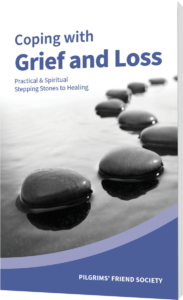 Robots are being introduced to care homes in England because there aren’t enough people who are willing to look after frail, elderly people. (It’s not about the money – we pay more than the basic rate and stacking shelves in Tesco doesn’t compare). For some time, people in different parts of the country have been seeing their GPs over Skype. Now Matt Hancock, the Health Minister, has said that patients would be happy to receive a terminal diagnosis over Skype ‘because they will be at home with loved ones and not sitting in front of their doctor.’ Psychiatrist Max Pmberton has a lot more experience of difficult conversations with patients that the Minister, and he strongly disagrees. [i] He writes
Robots are being introduced to care homes in England because there aren’t enough people who are willing to look after frail, elderly people. (It’s not about the money – we pay more than the basic rate and stacking shelves in Tesco doesn’t compare). For some time, people in different parts of the country have been seeing their GPs over Skype. Now Matt Hancock, the Health Minister, has said that patients would be happy to receive a terminal diagnosis over Skype ‘because they will be at home with loved ones and not sitting in front of their doctor.’ Psychiatrist Max Pmberton has a lot more experience of difficult conversations with patients that the Minister, and he strongly disagrees. [i] He writes
‘‘As a doctor, I find breaking bad news one of the most challenging parts of my job. Whether it’s telling someone they have terminal cancer, or that a loved one has dementia, it never gets any easier. But we are trained to do this sensitively and compassionately — and face-to-face, so that person feels respected and supported.”
Imagine receiving such traumatic news over the telephone, or via Zoom or Skype, rather than in person. How would you feel?
Perhaps it’s a sign of the times that we are now viewed as pieces on a conveyor belt to be treated mechanistically. To be fair, robots in care homes aren’t being used instead of care staff, but to supplement them. There’s no attempt to fool residents into thinking they are human beings. Carers are valued for the highly skilled workers they are.
But to give human beings the most devastating news over a screen, instead of in person with a pat on the arm or an arm around the shoulder and the empathy they need shows how low our culture has fallen.
 Reading this today, I felt glad my new booklet is out. ‘Coping with Grief and Loss’ has a lot to say about empathy, and supporting people at times like this. Thank you to all of you who shared your experiences so I could include them to help others. I’m glad it’s available now, here: https://www.pilgrimsfriend.org.uk/coping-with-grief-and-loss
Reading this today, I felt glad my new booklet is out. ‘Coping with Grief and Loss’ has a lot to say about empathy, and supporting people at times like this. Thank you to all of you who shared your experiences so I could include them to help others. I’m glad it’s available now, here: https://www.pilgrimsfriend.org.uk/coping-with-grief-and-loss
It’s describes the things you can do to help yourself and others and describes things you can do as stepping stones through a miry, uncertain slough of despond.
But whatever you do, unless there is absolutely no other option, don’t give sympathy and warmth by Skype. At times like these, people need people – it’s the way God made us. Most of all, we need Him – and I can tell you from experience, He doesn’t let you down.
[i] https://www.dailymail.co.uk/health/article-8724387/DR-MAX-MIND-DOCTOR-abhorrent-terminal-diagnosis-happen-Zoom.html














